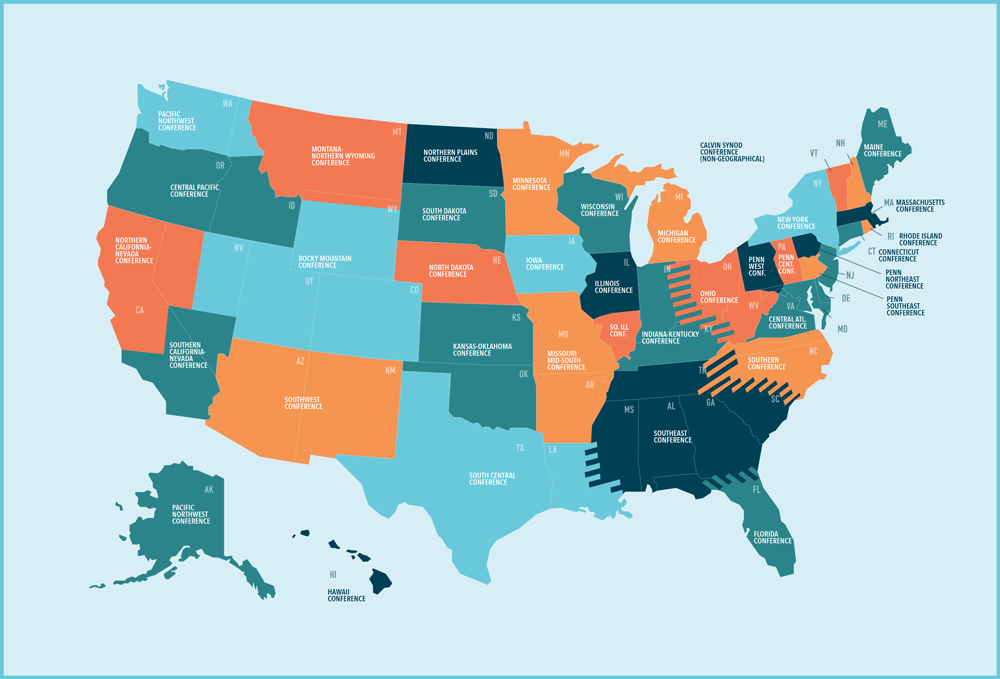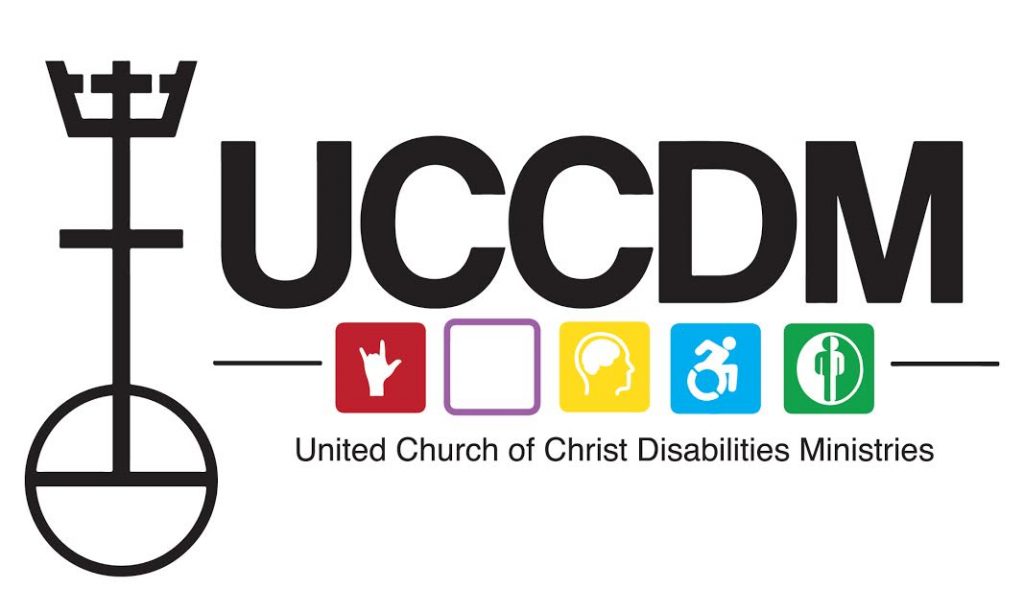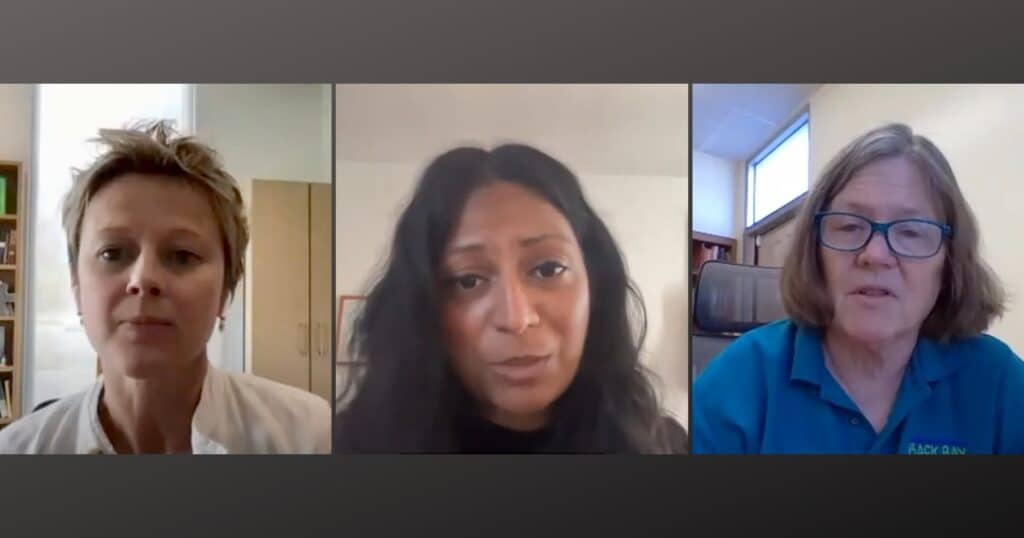Ohio, Indiana-Kentucky experiment in conference collaboration underway
 It’s an experiment in regionalization that will likely attract a lot of interest. The Ohio and Indiana-Kentucky Conferences of the United Church of Christ are sharing a conference minister for the remainder of the year to see if combining resources around leadership is a workable idea. It’s one of the first tangible steps taken at the conference level to deal with issues of sustainability.
It’s an experiment in regionalization that will likely attract a lot of interest. The Ohio and Indiana-Kentucky Conferences of the United Church of Christ are sharing a conference minister for the remainder of the year to see if combining resources around leadership is a workable idea. It’s one of the first tangible steps taken at the conference level to deal with issues of sustainability.
“The experiment is being watched closely in a number of places,” said retiring UCC General Minister and President the Rev. Geoffrey Black. “Maybe we can do this differently at the conference level, with the leadership of one person.”
During a six-month period, which began June 1, Ohio Conference Minister the Rev. Phil Hart will dedicate about one-fourth of his work time to Indiana-Kentucky. He said a covenant committee, with representatives from each conference and the national setting, will be evaluating the process along the way, with a decision to “A-continue it, B-end it, or C-alter it,” at the end of the year.
“The Ohio Board already set up an approval and structure for us to be able to try some new experiments and do some new things,” said Hart. “We expect we are going to learn a lot, and will teach the church some important things, and we’ll go from there.”
While conferences operate independently, in covenant with local churches and the national offices, Black got involved in initiating and supporting the conversation between Ohio and Indiana-Kentucky because of the 2013 General Synod Resolution on Conference Boundaries. The resolution about conference boundaries came before the Synod because boundaries can be regulated. The issue is more about staffing and vitality, with conferences looking at ways to collaborate resources and mission to find a sustainable future.
“If we work together around staffing to meet the needs of local churches, and find ways to create a dynamic team using today’s technology to serve the entire region, it’s a win-win for the conferences and the churches, using the richness of their abilities to benefit all,” Black said.
The denomination’s newly elected general minister and president, the Rev. John Dorhauer, agrees. As conference minister of the Southwest Conference UCC, he helped author the resolution asking the wider church to open a discussion around current conference structure.
“This is largely a conversation that the church must engage in at every level –– and it is not a conversation merely about conference boundaries,” said Dorhauer. “Conference boundaries as a subject matter is a piece of a much larger conversation about the wise stewardship of missional resources and assets. The larger question has to do with how well we are stewarding our resources collectively for the sake of our shared mission.”
The issues around vitality and sustainability at the conference level are nothing new. The discussion goes back to the tenure of the Rev. John Thomas. When he was general minister and president, Thomas and the other national leadership realized that more and more conferences were not economically sustainable in the current structure. More of the regional governing bodies were cutting staff, leaving the conference minister with no associate ministers, just an assistant or part-time help. Thomas convened a working group to look at what could be done to work around the shrinking resources of conferences, to find a sustainable way to continue to create, nurture, and encourage local churches.
The conversation continues today.
“The conferences in the South (Florida, the Southeast Conference, the Southern Conference, the South Central Conference) have been in dialogue since Geoffrey brought them together three years ago, and are on the verge of some dynamic shared missional thinking,” said Dr. Kimberly Whitney, UCC minister for covenantal relations. “There are a number of other exploratory conversations underway across conferences and regions, but the Ohio/Indiana-Kentucky initiative will be the first concrete, tangible result, with conferences taking a concrete step around sharing staff.”
“I am grateful for the serious discussions that are happening in almost every geography of this denomination about how our conference structure can best serve our shared mission and the needs of our local churches,” said Dorhauer. “I am hopeful that before too long, we are going to see how those conversations will bear fruit with a variety of actions that, once enacted, will secure a stronger, healthier, more vital future for our beloved United Church of Christ. I look forward to participating in that conversation with leaders committed to our shared mission –– and willing to adapt to the Church’s evolving needs for the sake of that mission.”
The Rev. Phil Hart is hopeful that a successful experiment in the Midwest provides a spark.
“Two key points about why we have confidence in this experiment –– first, as the Ohio Conference, we were ready, the board had given us the approval and the space to respond to opportunities,” said Hart.
“The second thing is this is an experiment that allows us to try something without having to pour a ton of resources or affirm a decision after discussion. We can test it and try it. We’ve worked from zero forward in the past, and that’s really hard. We have to be idling in first gear when the opportunities come up.”
Related News
Rethink Children and Youth Online Summit will delve into future of ministry for younger generations
Children and youth will be the focus of discussion at the Rethink Children and Youth Ministry...
Read MoreEngaging and Inclusive Worship grant: Call for focus group participants
The United Church of Christ National Setting has received a $2,000 grant originating from the...
Read More‘Brave Conversations’: Webinar speakers navigate interfaith relations in time of deep polarization
With the Middle East conflict fueling antisemitic and anti-Muslim rhetoric and violence in the...
Read More


